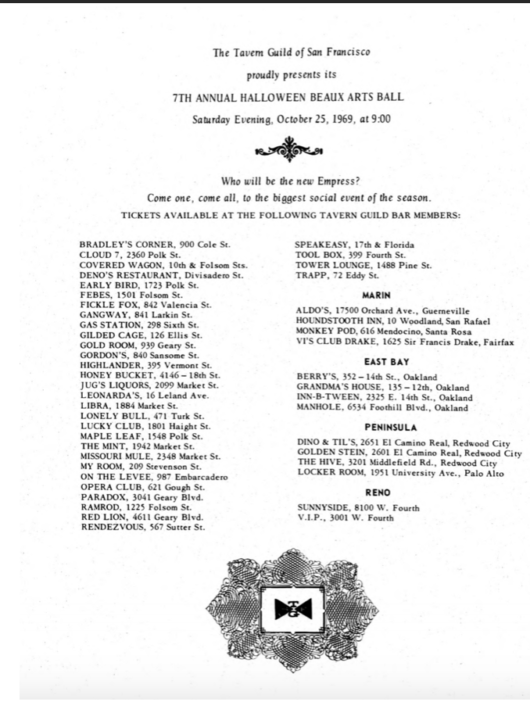This image depicts a long list of Bay Area (and Reno, for some reason) bars part of the Tavern Guild of San Francisco (estab. 1962). Originally organized to bring in more business during slow hours, it quickly transformed into a safety network adapted for ongoing issues around the city. The length of the list demonstrates how comprehensive the organizing and solidarity was between bar owners, employees, and customers. This commitment was made necessary by patrons writing defunct checks, but more urgently by the threat of the police, who targeted gay bars for raids because of their queer, “immoral” activity and late hours. The queer community, at this time, was extremely vulnerable to losing their jobs, being harassed by police on their way home, being arrested for same-sex physical contact, etc. For many, the Tavern Guild was the most accessible protection against police violence. The Tavern Guild also fundraised for causes outside of the gay movement, including the Civil Rights Movement and the United Farm Workers. Thus the Guild exemplifies what solidarity looks like in critical organizing.
A precedent to the Tavern Guild was the 1960 scandal in SF dubbed “Gayola,” in which gay bar owners exposed the police for bribery. Eight police officers were caught demanding pay-offs for relaxing the enforcement of moral codes. This public scandal was one of the first times the media portrayed the gays, not the police, in a positive light. The mid-50s Alcoholic Beverage Control law empowered the police, which at the time was decentralized, to use their own judgement regarding gay bars. Click here for more information on Gayola.
